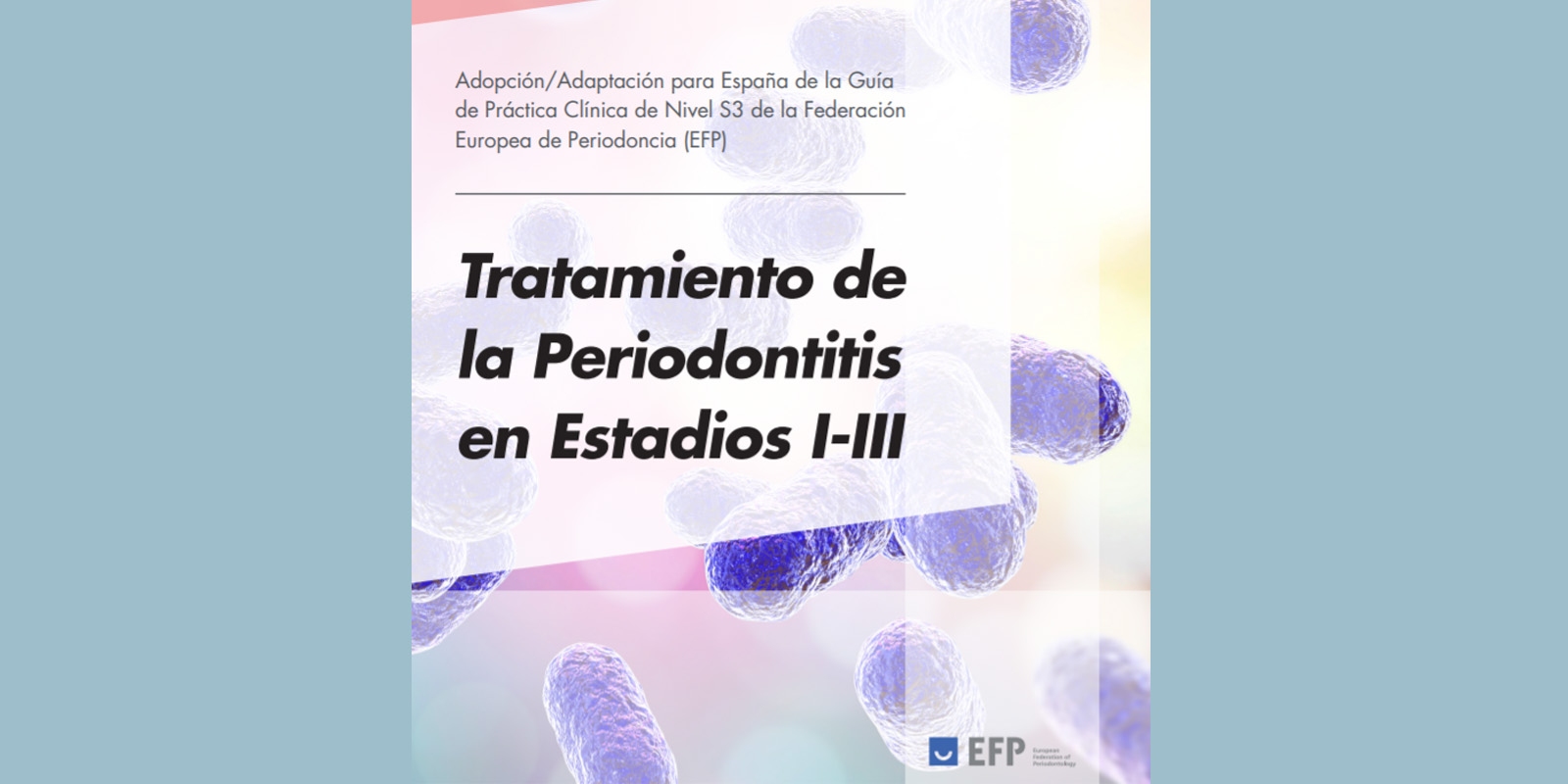DENTAID EXPERTISE
News for dentistry professionals
Prescription of antibiotics in the extraction of third molars

The extraction of impacted third molars is the most common surgical procedure in an Oral Surgery and Maxillofacial Surgery unit. Although it is a routine surgical intervention, various postoperative complications can arise, such as infection, dry socket, lockjaw or pain. These complications can alter patients’ daily activities and make speech, chewing, or oral hygiene difficult. The prevalence of postoperative infections after third molar extraction is estimated to range from 1-11%. Importantly, some of these infections can travel to deep anatomical spaces and require patient hospitalisation. Moreover, dry socket is a rare postoperative complication that occurs between the second and fourth days after extraction and is characterised by acute and severe pain without signs of inflammation or infection. So far, the aetiology of dry socket remains unknown, but it seems that bacteria may play an important role in its onset.
Although complications of an infectious nature after third molar extraction are relatively rare, dentists frequently prescribe prophylactic antibiotics in order to prevent them. A recent Cochrane systematic review of double-blind controlled clinical trials highlighted the efficacy of antibiotic prophylaxis in reducing the number of infections and dry socket after surgical removal of the lower wisdom teeth. However, according to this study, the number of patients that need to be treated (NNT - Number Needed to Treat) to prevent a postoperative infection was 19 patients, while to avoid a dry socket the NNT was 46. NNT is a statistical measurement used to report the efficacy of a drug treatment. This statistic is the number of patients that must be treated to avoid an additional negative outcome, that is, to prevent a postoperative infection or dry socket.
It must be considered that antibiotic prescription can be associated with complications such as nausea, vomiting, gastric pain, diarrhoea, headache or candida superinfection. Many of these complications are related to the use of broad-spectrum antibiotics which alter the intestinal microbiota or other regions of the body. In addition, the routine administration of antibiotics in third molar extractions can represent a significant financial burden for the public health system and can also facilitate the emergence of resistant bacterial strains. In fact, over-prescribing and misuse of antibiotics have been shown to be the main causes of bacterial resistance to antibiotics.
More than 35,000 deaths occur each year from antibiotic-resistant infections in the United States. According to a report by the World Health Organization (WHO), antibiotic resistance is one of the greatest threats to global health, food security and development. Furthermore, the WHO concludes that “if urgent action is not taken, the world is heading into a post-antibiotic era in which many common infections and minor injuries will once again become potentially life-threatening.” Therefore, it is imperative to stop considering the decision to prescribe an antibiotic as a trivial matter, and to write out safe and responsible antibiotic prescriptions.
Obviously, antibiotics should be prescribed routinely to very specific patient profiles, such as older patients, patients with major systemic diseases, those who are immunocompromised, etc. However, routine prescription of antibiotics after third molar extraction cannot be considered an acceptable practice among young patients or those without associated pathologies. In many circumstances, the threat of infection is so low that the risks of using antibiotics outweigh its potential benefits.
About the Author
Resident of the Master of Oral Surgery and Buccofacial Implant Dentistry at the University of Barcelona. Investigator at the Bellvitge Biomedical Research Institute (IDIBELL), Barcelona, Spain.
Bibliography
- Lodi G, Azzi L, Varoni EM, Pentenero M, Del Fabbro M, Carrassi A, et al. Antibiotics to prevent complications following tooth extractions. Cochrane Database Syst Rev. 2021;2:CD003811.
- Riba-Terés N, Jorba-García A, Toledano-Serrabona J, Aguilar-Durán L, Figueiredo R, Valmaseda-Castellón E. Microbiota of alveolar osteitis after permanent tooth extractions: A systematic review. J Stomatol Oral Maxillofac Surg. 2021;122:173-181.
- Antibiotic resistance threats in the United States centers for disease control and prevention. Antibiotic resistance threats in the United States, 2019. Atlanta, GA: U.S: Centers for Disease Control and Prevention, 2019.
- EU Commission 2019 Implementation of the EU One Health Action Plan against AMR. European Commission 2019.
- Sancho-Puchades M, Herráez-Vilas JM, Valmaseda-Castellón E, Berini-Aytés L, Gay-Escoda C. Analysis of the antibiotic prophylaxis prescribed by Spanish Oral Surgeons. Med Oral Patol Oral Cir Bucal. 2009;14:533-7.
- https://www.who.int/news-room/fact-sheets/detail/antibiotic-resistance
RELATED ARTICLES

17 Feb 2022
EuroPerio Series: professional discussions and scientific exchange
To keep the global perio community up to date with the latest research findings as well as give a taster of what is to come at EuroPerio10, the…

21 Jan 2022
Xerostomia in COVID-19 positive patients: clinical considerations
Severe Acute Respiratory Syndrome Coronavirus 2 (SARS-CoV-2) the cause of the pandemic known as COVID-19, affects different organs and systems (lungs,…

20 Jan 2022
A guide adapted to Spain to optimise the approach to periodontitis
There are currently numerous clinical practice guidelines to direct the treatment of many systemic diseases (such as diabetes, depression,…
Sign up for the DENTAID Expertise newsletter
Sign up for the newsletter